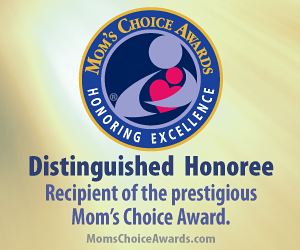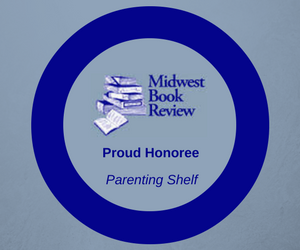Resolving Conflict
Parenting & Conflict
Conflict is a part of life. I know people who thoroughly enjoy conflict and others who avoid it at all costs. One of the cornerstones I cover with adolescent boys and their parents is “conflict resolution.” By utilizing my process the family is able to communicate more effectively and peacefully.
You-You-You
One of the biggest mistakes in a conflict is “you-ing” someone:
- “You did that wrong”
- “You act like a child”
- “You never do what I ask you to do”
- “You don’t think things through”
It is the quickest way to escalate a conflict; “you-ing” someone creates a confrontation. It feels like an attack when it’s approached this way versus using “I” statements.
Get Your Free Conflict Resolution Tool – Download Here
Here’s a quick example:
- “I think I would have done that differently”
- “I think that was immature”
- “I would like you to do what I ask”
- “I would like to see you think things through”
- “I need you to get this done”
If you have a feeling, say what the feeling is!
Keeping it super simple; remember the big four:
Healthy Conversation
I teach adolescent boys to take responsibility for issues that upset them and how to resolve. Most of the time those “issues” are with their parent(s).
Basically, in its purest form, it’s understanding that there are two sides to a conflict and it can be discussed more peacefully!
The parents learn the same process. Families are amazed that when approached correctly how easily a conflict can be resolved.
Think about conflicts you’ve had in your life; I would venture to say that if it didn’t go well it was because you didn’t feel you were “heard.” Two things that are inevitable in a conflict is someone isn’t listening and someone isn’t being heard or both(honestly, some people hear funny, and some listen funny)! Ironically, unless you are listening and you are being heard there can be no understanding. If neither can understand each other there can be no resolution.
Practice Makes Perfect
The process is learned so it takes practice. The good news is once you learn and begin to incorporate with your kids, you’ll find it can help at work, with your spouse/partner and generally anytime you find yourself in the midst of a conflict.
Conflict Resolution: Conversation Examples
I chose two of the conflicts I see frequently between an adolescent boy and his parent.
Get Your Free Conflict Resolution Tool – Download Here
- State the facts: Who, What, When and Where
- Make a judgment: A judgment is an “I think you or me statement” about self and about other person
- State feeling: The Big Four-mad, sad, glad or afraid (can be a combination of these)
- Say what you want: You want to be heard and what you want to be different
Rules of Engagement
The rule is this: Schedule time together, at least an hour, to discuss the conflict. There should be no distractions or disturbances. One person speaks at a time, the other listens intently to repeat back what the other says (approx. 7 words +/-) until completed. This rule is very important as it solidifies that each person is listening and “engaged.”
“Everybody Else Gets to Stay Out Later”
If you’re parenting son(s) 15-17 yrs. old, how often do you hear this one? It’s the most popular topic for conflict resolution among parents of older boys.
In this case Dylan and his mom; she is angry that Dylan broke curfew.
Dylan: “Mom I didn’t get home last night until midnight (FACTS) (Rule: Mom repeats-you didn’t get home last night till midnight). I think 10:00 p.m. is too early and if you trusted me more you would let me stay out later (JUDGMENT) (Rule: Mom repeats-you think 10:00 p.m. is too early and if I trusted you more I’d let you stay out later). I feel mad, it’s unfair I’m the only one who has to be home by 10:00 p.m.(FEELING) (Rule: Mom repeats-you feel mad because you’re the only one who has to be home by 10:00 p.m.). I want you to let me stay out later. Can we make 11:00 p.m. my curfew (WHAT YOU WANT) (Rule: Mom repeats-you want to stay out later till 11:00)?”
Mom: “Dylan last night you broke curfew; curfew is 10:00 p.m. (FACTS) (Rule: Dylan repeats-I broke curfew, curfew is 10:00 p.m.). I think midnight is too late and I think you push it on purpose (JUDGMENT) (Rule: Dylan repeats-you think midnight is too late and that I push it on purpose). I feel angry but also afraid for you to be out that late (FEELING) (Rule: Dylan repeats-you feel angry and afraid for me to be out that late). I do not want you out past 10:00 p.m., but I hear that you want more time. I am willing to extend curfew to 10:15 p.m. because I do trust you (WHAT YOU WANT) (Rule: Dylan repeats-you don’t want me out past 10:00 p.m. but hear I want more time. You’re willing to let me stay out until 10:15 p.m. because you trust me).”
“I Just Need to Get to Next Level”
If your son is in the 11-13 yr. old range most likely his life revolves around video games!
In this case Caleb and his dad; he is tired of Caleb always playing video games.
Follow rule demonstrated above.
Caleb: “Dad I get yelled at everyday about playing Minecraft (FACTS). I don’t think it’s that big of a deal and I think you yell too much (JUDGMENT). I feel scared when you yell at me (FEELING). I really like playing games and I want you to let me, and also stop yelling about it (WHAT YOU WANT).
Dad: “Caleb playing video games everyday for hours gets on my nerves (FACTS). I think I get so frustrated I take it out on you by yelling (JUDGMENT). I feel angry when you’re always playing games. I’m sad that you are scared when I yell (FEELING). I want you to have time to play video, I don’t want to yell. I am willing to a limit of 2 hours a day (WHAT YOU WANT).
It Will Feel Uncomfortable
I mentioned in resolving conflict blog, this process is not “second nature” and it will feel awkward at first! What I know for sure is that following the steps above can be magical in resolving a conflict. These are examples of conversations with children; but it works the same with spouse, partner and co-workers so don’t hesitate to incorporate it in your everyday life.
As a Licensed Professional Counselor for over 25 yrs. I have taught many couples, parents, families and individuals this conflict resolution process. This method is the best and I highly recommend!
Were the examples helpful? Visit my Facebook page to share your experience.


